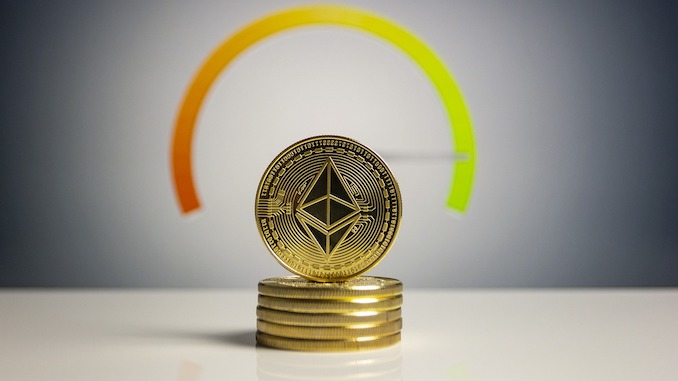Connection to Economic Trends
Bitcoin (BTC) often stands out as a vehicle for potential wealth. However, it remains tied to global economic events. Bitcoin price shifts with the economy, leading to dizzying heights and worrying lows. This link between Bitcoin and major economic trends like inflation, interest rates, and geopolitical tensions can give you insight into the cryptocurrency’s volatile nature.
Inflation’s Influence on Bitcoin as a Hedge
During high inflation, people seek assets that hold value over time, such as gold. Due to its limited supply of 21 million coins, Bitcoin has been marketed as a hedge against inflation. When central banks like the Federal Reserve print money to stimulate growth or counter economic downturns, the purchasing power of traditional currency tends to decrease. As a result, Bitcoin’s fixed supply appeals to those seeking an asset resistant to inflation.
In 2020, Bitcoin’s price soared as the pandemic led to unprecedented economic stimulus measures. Although this reflects BTC’s appeal as a hedge, it still suffers from significant volatility. Nevertheless, mainstream investors saw it as an alternative store of value. As inflation cools in some regions and persists in others, Bitcoin’s performance remains a point of interest for analysts and investors alike.
The Impact of Rising Interest Rates on Bitcoin’s Value
Rising interest rates are another major economic factor affecting Bitcoin’s value. Central banks use interest rates to control inflation. When rates go up, the cost of borrowing increases. In this instance, investors pull back from riskier assets, including bitcoin.
For example, in 2022, the Federal Reserve aggressively hiked interest rates to combat inflation, and Bitcoin’s price dropped sharply. High rates tend to make traditional investments like bonds more appealing due to their stable returns. Some investors prefer to stay away from risk-heavy assets like cryptocurrency. As a result, Bitcoin’s value can drop significantly, especially among cautious retail investors.
Geopolitical Tension and Bitcoin’s Role as a Safe Haven
The role of Bitcoin in geopolitical conflicts has also gained attention. Bitcoin’s decentralized nature maintains appeal when there’s economic or political instability. Unlike traditional assets, BTC isn’t tied to any government or central bank. It’s a safe haven for individuals moving their wealth outside turbulent regions.
For instance, in recent years, individuals have sought to bypass banking restrictions in Russia and Ukraine, and Bitcoin trading has surged in those countries. This event reveals Bitcoin’s role as an asset that provides access to financial markets even in restrictive environments. While this doesn’t always increase Bitcoin’s price, it adds to its global relevance as an asset with unique utility in various world scenarios.
Currency Instability and Bitcoin’s Appeal in Developing Countries
Currency instability in certain regions has also pushed more people toward Bitcoin. In countries facing sharp currency devaluation, BTC can seem more stable by comparison. When the local currency’s purchasing power deteriorates, people often seek alternatives to preserve their wealth. Bitcoin’s accessibility and global usage make it an attractive option.
For example, inflation devalued the local currency in Argentina and Turkey, resulting in BTC adoption rising. This increase in demand can positively affect Bitcoin’s price, even if only in specific regions. While not immune to volatility, the coin’s global accessibility offers financial resilience in places facing severe economic instability.
The Impact of Recent Economic Events
Economic events over the past few years have demonstrated how these macro trends affect Bitcoin. In 2021, as economies recovered from the pandemic, interest in BTC surged. However, as inflation and interest rates climbed in 2022, Bitcoin’s price fell. These factors remind investors of how sensitive this cryptocurrency is to macroeconomic pressures.
These cases prove that bitcoin’s price is not isolated from the world’s financial events. Investors who understand the forces at play can anticipate when and why Bitcoin might surge. Are you an Investor trying to predict potential BTC price movements? If so, watch inflation reports, interest rate decisions, and geopolitical developments.
The Future Outlook
The global economy will continue influencing Bitcoin’s path. As governments and institutions refine their approaches to inflation and currency stability, BTC may rise or fall based on its appeal as an alternative asset.
It’s tempting to view Bitcoin as an independent or rebellious asset. However, it’s intertwined with the broader economic space. Because of this, Bitcoin investors must stay attuned to global economic events to understand its value fluctuations.
The A.V. Club editorial staff was not involved in the creation of this content.

